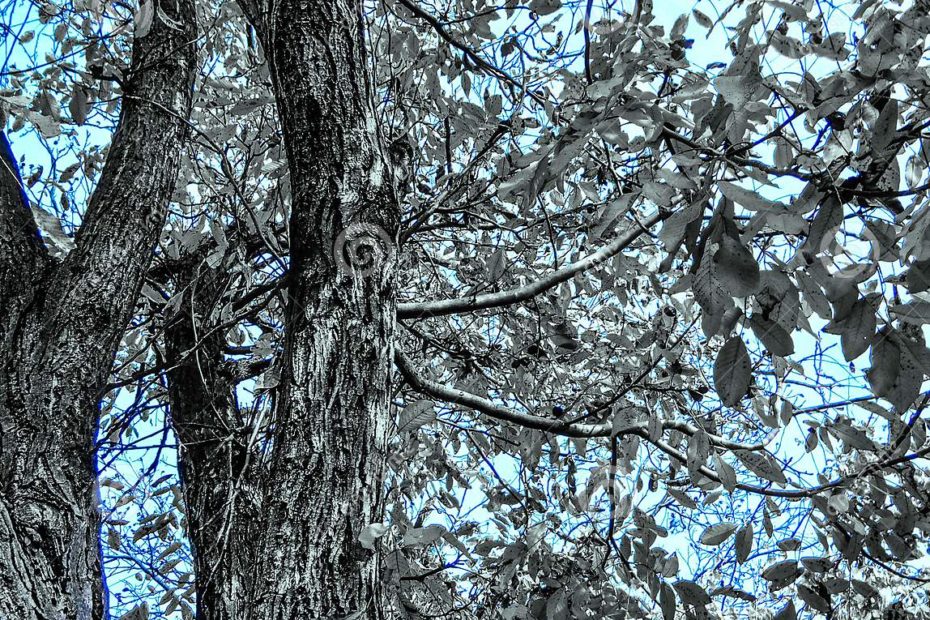Ritual of the Orchards
A few years ago I returned home to the central valley of California for a short visit and to pay my respects to the ghosts of memory that occasionally haunt me for good or ill reasons.
It was autumn, my favorite time of year especially in this part of the state. The great oak forests and willow patches that once dotted the landscape in the days of the Spanish missions and for millennia before, are long gone. Farms and orchards destroyed those places. The marshlands that once gave natives a natural highway of travel with wood or reed boats is long gone. If you try hard enough you might be able to imagine it. What is left are orchards planted in rows, that in spring are iced in white and pink blossoms, and in autumn are cloaked in low level mist, sometimes gray and foreboding.
But I wasn’t seeking something that far in the past. I was looking for something much closer. A ritual that existed only for these orchards.
When the harvest was over and winter skies outlined the skeleton arms of walnut trees, peach trees, or almond trees, the men with long saws carefully pruned away those arms. It used to sadden me as a child. The limbs seemed to be reaching upward as if in surrender to some unresponsive god.
Carefully these limbs were piled in tall bunches resembling domes. On a day deemed safe by the county or local authorities they were lit.
And they burned.
They burned through the day and long into the night.
We children gathered for the burning. In jeans and t-shirts covered in sweaters we came. On weekends we could sit and watch the fires burn into an orange Jack o Lanterns grinning through out the orchards. The sweet smoke sometimes infused our hair and clothes but we didn’t mind. Boys and girls. Friends and bullies. We were all drawn to the burning.
School thermos with cartoon characters filled to the brim with hot chocolate were passed like communion wine. We stared and drank, whispering softly, sometimes breaking out in laughter, and now and again throwing a chunk of wood or a stone into the orange embers. Sparks of gold would escape and slip high above our heads.
And then someone would begin to sing. The words made no difference. A song learned in school, a folk song carefully censored of all social meaning, a popular song heard on our scratchy transistor radios, the theme of a television show, or perhaps one of those secret tunes shared by children. A song about torturing teachers or burning down the school, of raiding a candy store, or pulling down the pants of your best friend. The words didn’t matter. Only our voices breaking with puberty, still sweet but barely innocent.
Our feet would stamp the chilled ground now growing damp. We would rise, clap our hands and dance. First a dance we saw on Bandstand or a regional rip-off. Our butts wiggling and arms waving, we were pagans unaware. Around the fire we would go. No longer aping motions seen on black and white screens. Something primal set in. Our hands clapped to the movement of our feet.
And somewhere in our distant racial past, our ancestors called out to the old gods. Winter is coming, And we are ready. We dance and sing to show we do not fear the Winter. We survive.
And the fire burned deep into the night.
One by one we left the fire. No words spoken. Chocolate stained and smelling of wood smoke we returned to the world of rules. Perhaps somewhere the Green Man watched and approved.
How many times? How many autumns? I no longer remember.
As the years passed, some of us also passed. Some could not take the abuse of parents and life and lost hope. Others enjoyed the thrill of night drives at 100 miles an hour on full moon nights and slammed into oak trees and hungry orchards. The weak ones were swallowed in quiet reservoirs or river water and found days later.
But those of who remained returned and sang. And we danced late into the night.
Driving home, dusk in my mirror, orchards to my right and left I see the glow of burning limbs. I stop my car and step onto soft sand. I walk slowly towards the fire.
What was my last thought at my last burning? Did I pray to a god I no longer believe in to bring me home from war? Did I remember the kiss of my first girl or how we gave in to each other in fumbling passion, pain and excitement? Or did I just say goodbye?
An outsider, I approach with stealth learned in a dozen battles and a dozen cities. I hear a song. The words did not matter.
Around the fire, young bodies in jeans and sweaters clapped and danced to a ritual of their own making. Girls and boys. Friend and bullies. Did they know something ancient called from their blood to ancestors strong and defiant? Could they dare imagine another night, a continent and a dream away where pagans clad in skin and paint chanted against the coming cold?
No. Of course not. They were dancing the ritual of the orchard.
And for a moment, I was no longer the outsider. I was the Green Man. And I approved.
Quietly, unseen, I walked away and drove home in the darkness.
